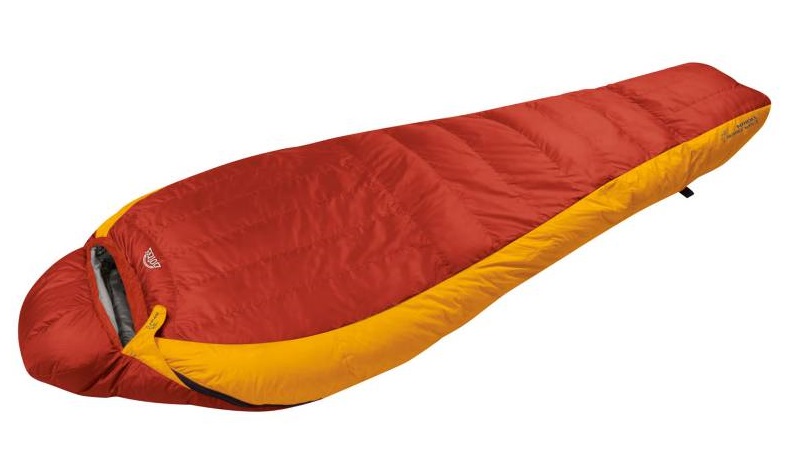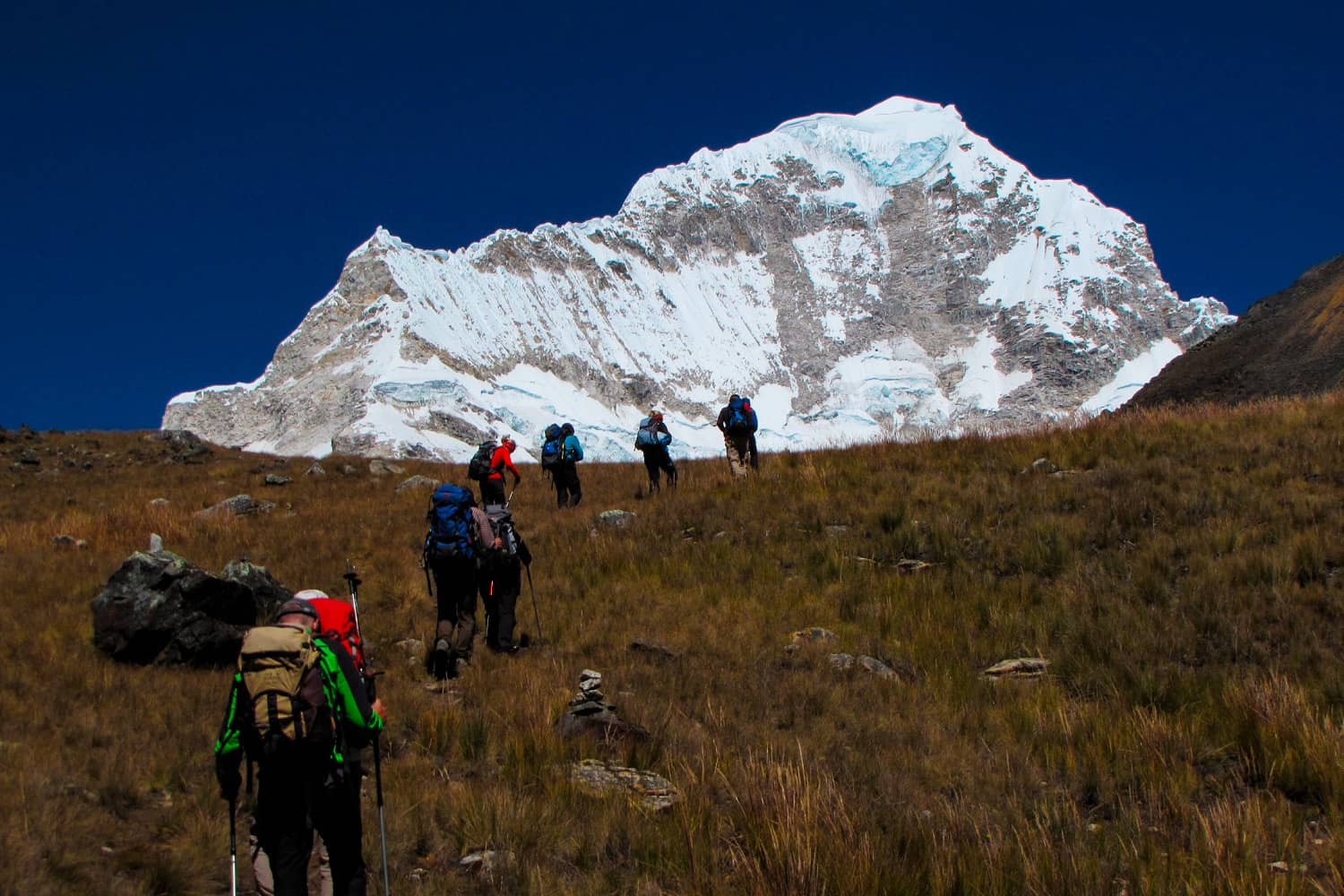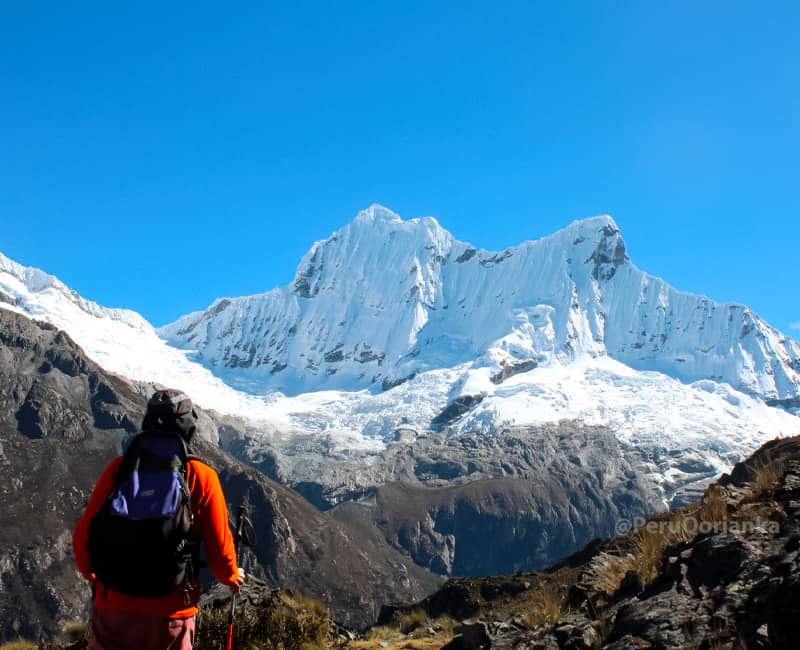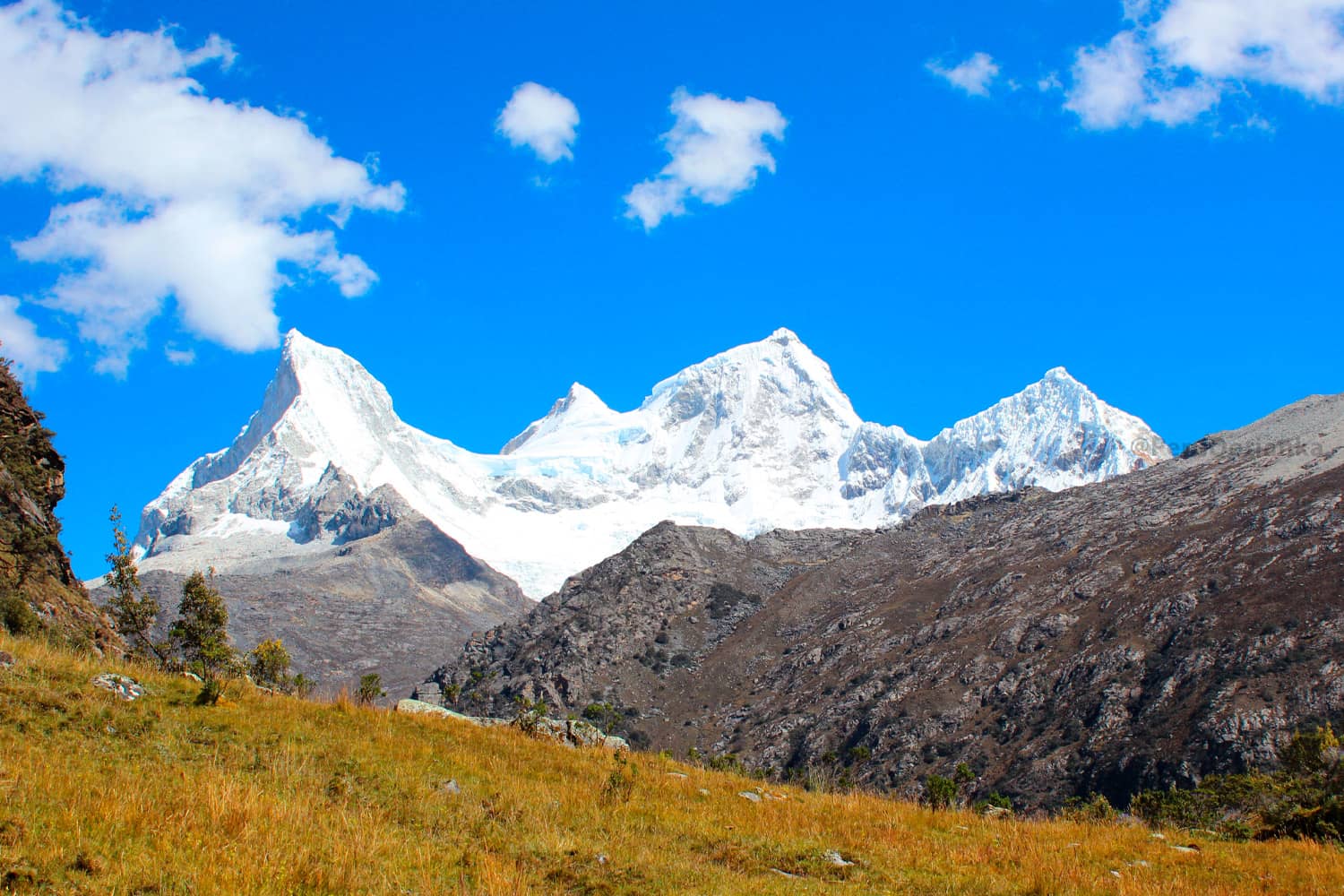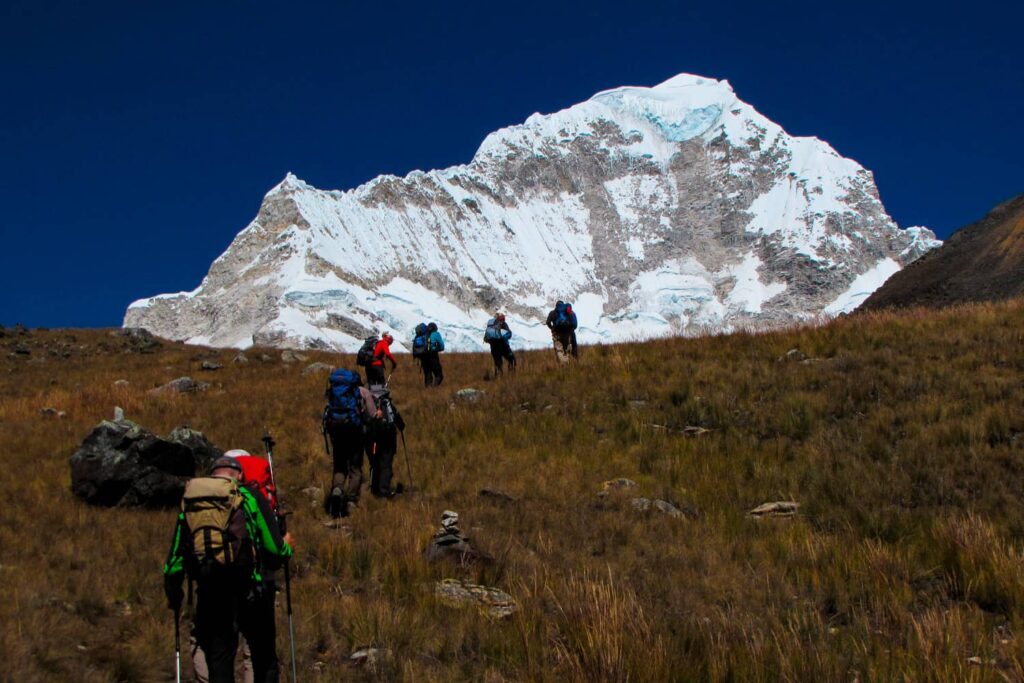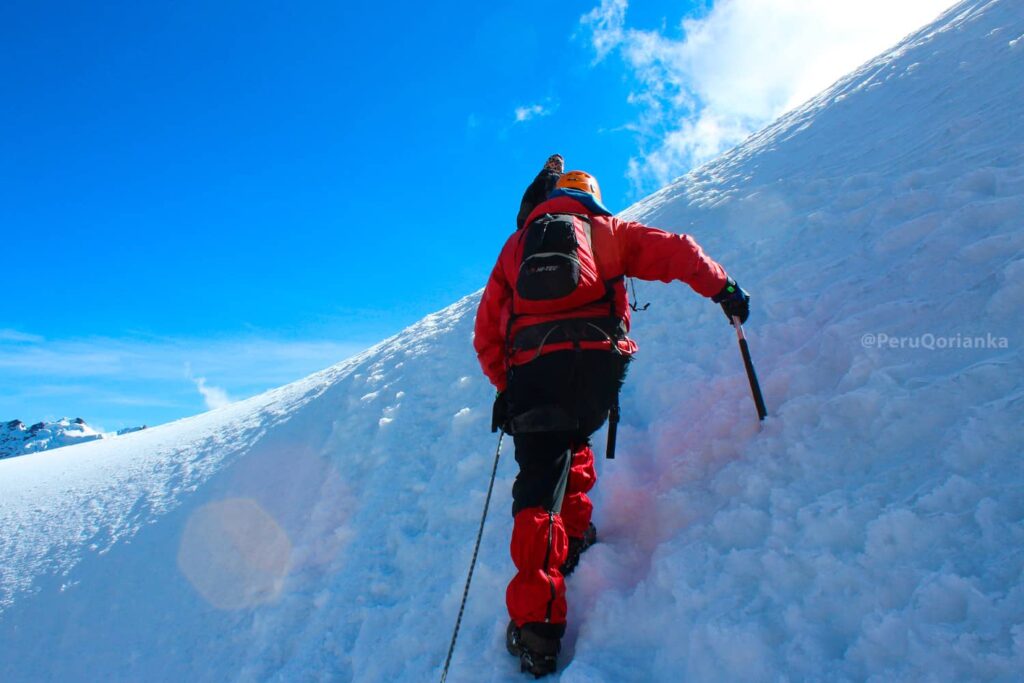Climbing usefull information
QORIANKA Travel & Experience has developed detailed information covering our climbing trips to support our clients’ knowledge base in addressing possible questions you may have during typical climbing days. The information provided is general for all our offered climbing programs in the Cordillera Blanca with differences of grades and difficulties attributable to each trip.
Acclimatization:
Proper acclimatization is required for all our climbing expeditions. We can advise our clients on a suitable acclimatization program including day hikes and acclimatization trekking programs. For climbing technical peaks above 6,000 m we strongly encourage our clients to do a “warm up” climb on a 5,000 m peak for extra protective acclimatization. We always consider our clients safety above all else as our number one responsibility and by successfully completing an appropriate acclimatization program suitable to the level of altitude and technical rating of the mountain you are attempting to summit is both required and intelligent.
The Climbing Day:
On the day of the climb we generally leave camp very early depending on the specific peak we are climbing. Our guides are flexible in making this decision based on their discerned observation of the clients’ level of fitness and experience. On difficult or technical mountains you may expect to leave around midnight and for the less difficult peaks we generally leave our camp between 2:00 AM and 3:00 AM to make full use of the more solid and safer snow and ice conditions. Head lamps and cold weather gear are needed. Use of proper fitting crampons and an ice axe for climbing in the dark and cold will be important skill sets to learn and we will make the opportunity to practice these safety mountaineering techniques the day before at camp. After summiting, our focused goal is to safely return back to our camp before the afternoon sun softens the snow. After summiting and descending back to our camp, we’ll enjoy a hot drink and a well-deserved meal.
Climbing Equipment:
Peru Qorianka provides the climbing team’s safety rope, snow stakes and ice screws. Our clients need to bring their own personal climbing equipment. If you find it’s expensive and/or too heavy to bring your full complement of climbing equipment from home, then alternatively all specialized climbing gear including boots can be inexpensively rented in Huaraz, Peru, our home base and launch point for these adventure climbs in the Cordillera Blanca range. We will help you organize the rental of any climbing equipment you may need.
Support:
All climbing trips are led by our professionally qualified UIAGM licensed Peruvian Mountain Guides. Depending on the specific difficulty rating of the mountain, with groups up to 3 or 4 clients, there is at least one licensed assistant mountain guide to help assure our clients safety and increased enjoyment. We use donkeys to carry equipment up to our base camps and our climbs are supported by porters who carry our tents, equipment and food. This is a team effort so each client will need to carry their own personal clothes and climbing gear for use at our high camps unless you chose to hire an additional personal porter to support you.
Safety:
Climbing groups are organized so that in the event of an unplanned accident, illness or tiredness, there are always sufficient qualified climbing staff on the mountain to successfully execute a rescue and / or evacuate clients safely back down the mountain with an assistant guide or a mountain porter so that other members of the climbing group will be able to continue with their summiting in safety if they choose to do so.
Grading:
The grading of the climbs is an indication only of the level of difficulty. Even climbs suitable for beginner climbers are sometimes graded medium too hard to reflect that the altitude makes climbing on any peak physically demanding. Peaks rated as difficult to technical require previous climbing experience in order help assure the safety of both our climbing clients as well as the safety of our guide staff.

